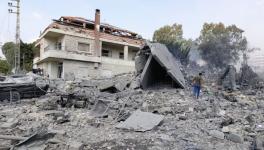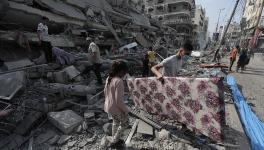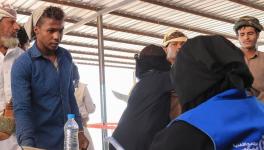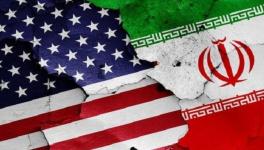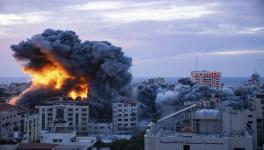Is the Tide Turning in Yemen?
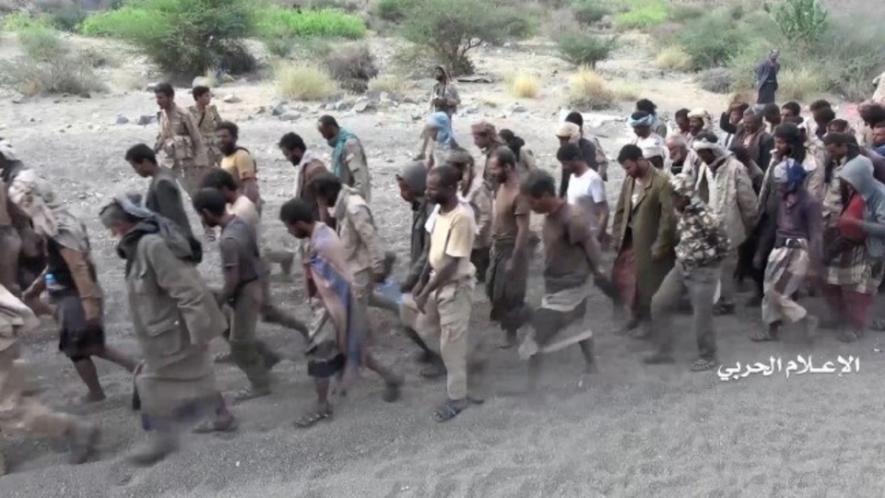
Houthi forces have claimed that an operation named “Victory from Allah”, started by them in late August, has been successful in capturing Saudi Arabian territory and prisoners of war in the Najran province, bordering Yemen.
Last week, the Ansar al-Allah (Houthi) forces in Yemen claimed a major victory, stating that its fighters had successfully invaded Saudi Arabia’s territory, and “liberated” a 350 square km area in the Najran province. The Houthis also claim to have killed around 500 of the coalition forces, and captured around 2000. According to them, a large number of those captured are citizens of Saudi Arabia. While there is still no independent confirmation about these statements, the operation could mark a major turning point in the war.
The Houthi forces asserted that the operation named “Victory from Allah” was successful in destroying three brigades and one regiment of the Saudi-led coalition forces. There are reports that the operation might have taken place in August or late in September after the drone attacks on Saudi oil facilities on September 14, for which the Houthis have taken responsibility.
The Houthis also released a video on Sunday on its official TV channel, Al-Masirah, to prove these claims. The footage shows the destruction of several armored vehicles and features a large number of people, who have been purportedly captured by the Houthi forces.
Najran is the southernmost province of Saudi Arabia, and shares a long border with Yemen. It was once claimed by the Zaidi rulers of northern Yemen as their territory. The Saudi-led coalition forces have been using the province to launch ground offensives against Houthi-controlled areas in the northern parts of the country since 2015.
Saudi Arabia’s denial
Most of the soldiers fighting under the Saudi command come from different provinces in Yemen and are recruited by loyalists of Abd Rabbuh Mansour Hadi.
In the last few weeks, there have been several reports in the media about the disappearance of hundreds of young Yemenis who were recruited by the Saudi-backed Hadi government forces. The Middle East Eye reported on September 24 that there is a widely held view in provinces such as Taiz, from where most of the fighters are recruited, that a majority of those who disappeared have been either captured or killed by the Houthis. The video released by the Houthis on September 30 confirms such reports.
However, in a press conference on September 30, the spokesperson for the Saudi-led coalition, Turki al-Maliki, denied the Houthis’ assertions, calling them a “misleading media campaign”.
The information minister of the Saudi-backed Hadi government in Yemen also called the Houthis’ claims of victory “fake”, and an attempt to hide underlying “political dilemma”.
Denial by the Saudis may be an attempt to conceal yet another beating from the much smaller and less equipped Houthi forces during the five-year-old war in Yemen. Acceptance of Houthis’ successes will not just embarrass the Saudis but also further demotivate its coalition forces. Possibly to avoid another such embarrassment, the Saudis have also refused to accept Houthi claims about the September 14 attacks on its oil facilities, instead blaming Iran without any proof.
Release of prisoners of war
Meanwhile, the Houthis seem to have adopted a more efficient strategy to expose the Saudi vulnerabilities in the war in Yemen. After proclaiming the success of the operation, the Houthis unconditionally released around 350 war prisoners belonging to the Hadi government forces the very next day.
According to the International Red Cross, the total number of prisoners released by the Houthis was 290. The official statement issued by the Houthi National Committee for Prisoner’s Affairs said that the move was meant to implement the UN-supervised agreement on prisoners’ exchange that was agreed upon in Stockholm in December 2018. In the present context, the release of prisoners is well thought out, proving the claims made by the Houthis and exposing Saudi Arabia, which is refusing to even acknowledge the loss of personnel.
After the September 14 attack, the Houthis threatened to attack locations in the UAE as well. However, they have also shown a willingness for a negotiated settlement of dispute, and even proposed a cease fire on September 20. The Saudi coalition is yet to respond to this offer. In fact, within days of the proposal, on September 22, Saudi air strikes killed 5 civilians in the Omran province in Yemen.
Saudi coalition on the defensive?
Saudi Arabia is the world’s largest buyer of arms. It is the country with one of the highest defense expenditure in the world, and is actively supported by the United States. Apart from the US, the UK and France have also provided sophisticated equipment and technical support to the Saudi war efforts in Yemen.
However, in spite of all the resources and help at its disposal, Saudi Arabia has been unable to prevent attacks on its territories and to protect those who are fighting on its behalf. The infighting within the coalition in Aden and adjacent areas has also continued due the Saudis’ inability to convince the UAE, the second largest coalition partner, to continue its participation in the ongoing war. These developments are all symptoms of Saudi Arabia losing the battle in Yemen.
The war in Yemen started in 2015 after the Saudi-led coalition took the responsibility of re-installing the Hadi government in the capital Sanaa, which was captured by Houthi forces in 2014. Since then, hundreds of thousands of lives have been lost in the conflict. The war on the ground, the air strikes carried out by the Saudi Arabia and the UAE and the blockade on all kinds of trade, including essential food and medical supplies, has caused the “world’s greatest humanitarian disaster,” according to the United Nations.
The war has led to the displacement of millions, and has pushed almost the entire population to the verge of death due to starvation and lack of essential medical services. Though successive UN reports have implicated both the Houthis and the Saudi coalition for numerous war crimes and human rights violations, it is the latter which is responsible for the blockades and the air strikes, the two biggest causes of civilian misery in the Arab world’s poorest nation.
Get the latest reports & analysis with people's perspective on Protests, movements & deep analytical videos, discussions of the current affairs in your Telegram app. Subscribe to NewsClick's Telegram channel & get Real-Time updates on stories, as they get published on our website.









